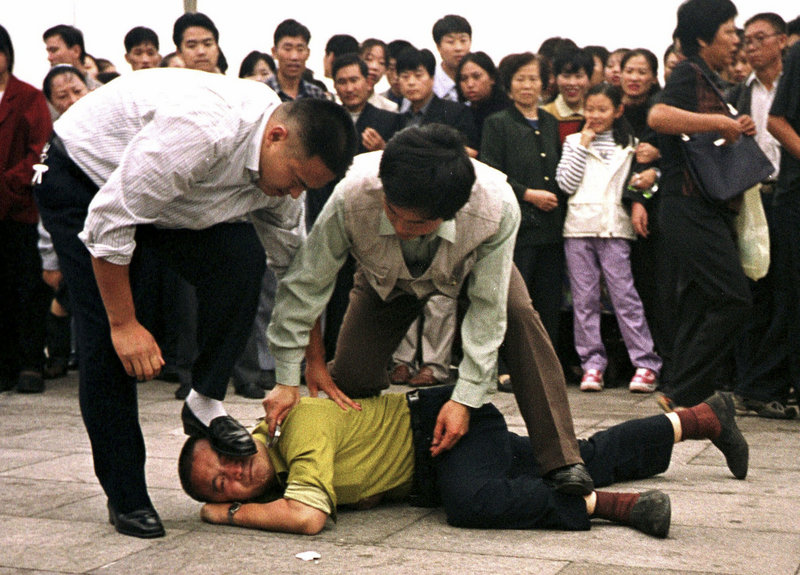BRUSSELS – An international human rights group believes that many governments and global institutions, including the European Union and the United Nations, are not pressing abusive nations hard enough to respect human rights.
Human Rights Watch, in its World Report 2011 for release today, decried the increasing use of dialogue and cooperation to urge reforms — but without any teeth to ensure that change occurs.
“Dialogue and cooperation have their place, but the burden should be on the abusive government to show a genuine willingness to improve,” Kenneth Roth, executive director of the group, said in a statement accompanying the report. “In the absence of the demonstrated political will by abusive governments to make change, governments of good will need to apply pressure to end repression.”
Human Rights Watch said that recent examples of governments’ failures to exert pressure on abusive nations included “the near-universal cowardice in confronting China’s deepening crackdown on basic liberties.” Many countries seeking economic cooperation with China fear offending the emerging superpower on rights issues.
It praised the Norwegian Nobel committee for awarding the Nobel Peace Prize to imprisoned Chinese dissident Liu Xiaobo despite China’s displeasure.
Other examples cited by the group of failure to act included:
• The EU’s “obsequious approach toward Uzbekistan and Turkmenistan.”
• The West’s “soft reaction to certain favored African autocrats, such as Paul Kagame of Rwanda and Meles Zenawi of Ethiopia.”
The report was especially critical of the EU and the UN for “soft-talking” human rights abusers.
“The ritualistic support of dialogue and cooperation with repressive governments is too often an excuse for doing nothing about human rights,” Roth said. “The EU’s ‘constructive dialogues’ are among the most egregious examples of this global trend.”
Human Rights Watch said the EU’s “record of discrimination and rising intolerance against migrants, Muslims, Roma, and others” along with other abusive practices suggest the EU and its member states “need to show greater political commitment to ensure that respect for human rights at home matches the EU’s rhetoric abroad.”
President Obama also came in for disapproval, with Human Rights Watch saying that “his eloquent statements have not always been followed by concrete actions.”
It said U.S. government agencies, including the Defense Department and U.S. embassies, “often deliver divergent messages” about human rights.
Send questions/comments to the editors.



Success. Please wait for the page to reload. If the page does not reload within 5 seconds, please refresh the page.
Enter your email and password to access comments.
Hi, to comment on stories you must . This profile is in addition to your subscription and website login.
Already have a commenting profile? .
Invalid username/password.
Please check your email to confirm and complete your registration.
Only subscribers are eligible to post comments. Please subscribe or login first for digital access. Here’s why.
Use the form below to reset your password. When you've submitted your account email, we will send an email with a reset code.